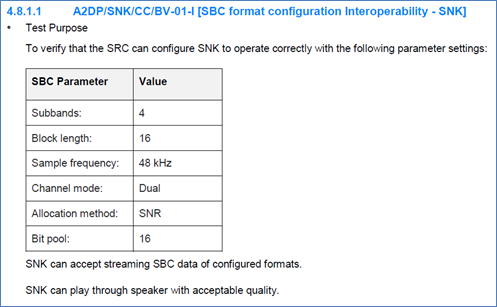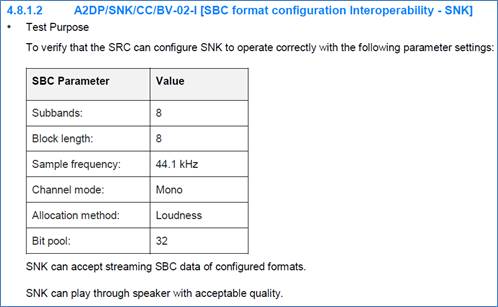Hi,
Customer uses CC2564MODA with bluetopia stack 1.2R for Tiva.
http://www.ti.com/tool/CC256XM4BTBLESW
They are at final Bluetooth listing phase, but test fails with below two formats.
A2DP/SNK/CC/BV-01-1
A2DP/SNK/CC/BV-02-1

Their software is based on A2DP demo in our SDK.
I guess our software should pass these tests without problems.
What is the potential causes of the failures?
This is production stop issue for customer.
Thanks and regards,
Koichiro Tashiro

